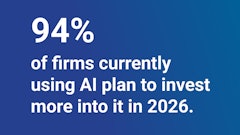
“Energy Management” is related to how effectively we leverage our days and schedule important meetings and calls based on our personal energy level. For most construction leaders it is no surprise that the average workday is scheduled “busy” from sunrise to sunset…and then some.
In this world of “more is better” many contractors run as fast as possible to squeeze as many meetings, decisions, estimates and close-outs into as short a period of time as possible. While the realities of construction have resulted in performing more tasks and projects in shorter periods of time, isn’t a leader’s responsibility to challenge this reality?
Our focus isn’t so much about giving up scheduled tasks and duties or to refuse to work more than 40-50 hours in a week, that’s not realistic either. Instead, my focus has been, and is, to empower you to consider how you schedule your day based on your energy levels.
With as much priority placed on providing quality in our project work, shouldn’t we be even more concerned that we are leveraging our efforts, and those who work with and for us, to be the best that we can be?
Our personal energy, that precious resource that we “own,” is ours to protect, to better utilize and to leverage so that we can position our best effort to achieve the best results.
There are eight contributors to energy management that impact how effective our days can be.
- Energy “ups and downs” during the workday
- Impact made on performance by rest breaks, including lunch
- Attitude and enthusiasm as contributors to focus
- Clarity of the day’s mission and recognizing weekly goals
- Preparation for known daily “headaches”
- Chemistry of the workers and the degree of synergy or teamwork
- Time allowances for scheduled tasks and are they believable
- Pure diet including are you eating and drinking healthy
The contributions listed above impact how effective our days can be. Our personal energy “ups and downs” — being more or less enthusiastic about some scheduled event or getting ready for “known headaches” — all play some role in how we manage our attention to detail and energy during our day.
In this article we will address the last two contributors to our energy, examine how they can impact our energy during the workday, and then present how we might better manage the issues.
Are time allowances for scheduled tasks believable?
This contributor is proof positive that contractors rarely consider a specific amount of time when thinking out their next day’s or next week’s schedule. Again, because construction leaders often believe that “more is better” it is not uncommon to be overly optimistic about how long a scheduled phone call to a customer might take or how long the employee safety meeting will be.
How many of us have:
- Stayed more than 30-60 minutes longer with a customer than we had scheduled?
- Allowed a meeting to go over the scheduled allotted time?
- Spent twice the amount of time reviewing a “profit-challenged” project than any other project under review?
- Asked others in a meeting or during a conference call to update you on information you received by e-mail earlier but didn’t take the time to read…causing the discussion to be extended longer than any had anticipated?
- Worked longer than planned on organizing the yard or storeroom after realizing the areas are a “mess” that hasn’t been maintained properly…like we thought?
While no contractor or construction leader is psychic, more attention paid to needs, expectations and questions that might be part of a scheduled effort before the event takes place can often sharpen our “estimate” about how long the event will last. Like any construction estimate, we might be a bit high or low in our actual time spent, but we can still more accurately project the time needed if we will simply think about the event in advance.
A key insight to our energy management, however, is found in the last phrase, “are they believable?” This question can greatly improve your realistic scheduling efforts as you learn to allow more or less time for future calls, tasks, meetings etc.
Let me provide a few simple examples. First, let’s say that you’re scheduled to meet with a frustrated customer who has accused your crews of not keeping the jobsite clean (or at least clean enough for his personal taste).
Before you schedule that meeting it might be wise to get some feedback from those on the jobsite, perhaps even drive by the site yourself for a brief but upfront look. It might even be wise to ask the customer if he has any specific issues about the jobsite housekeeping.
Then, if you have determined that the meeting should need only 20-30 minutes, schedule a 20-30 minute meeting with the customer, maybe building another 5-10 minutes at the most.
Do not schedule 60-90 minutes. Remember, the customer probably doesn’t want a long conversation as he has things to do too — just like you.
Another brief example. Let’s say that you have scheduled a meeting with a material supplier to discuss trying to get a discount because you’re buying a greater volume of materials. If you have already committed to a 9:00 a.m. – 10:00 a.m. meeting then do a bit of homework before you arrive.
Know what your costs have been for the volume purchased. Develop a realistic forecast for the volume of materials you see being used in this next year. Then, send your numbers in advance to your material supplier, perhaps even including a desired volume price that you are proposing they charge you.
While you might shoot them a price a bit less than you might expect them to agree to, you are letting them know that you are very serious about getting a discount; perhaps even alerting them to your efforts to seek out other material suppliers.
In both examples it is important, from an energy management perspective that you set a believable amount of time in which to conduct the two different meetings; then you have to work to maintain that time period. Such self-discipline on your part keeps you focused, energized and protects your mental attitude from getting worn out from spending more time than you wanted or needed.
A final word on “believable.” Certainly what you believe is believable and what the other individuals need or expect can run into some conflict. We are not psychic, but we can more honestly consider what is needed in terms of reasonable amount of time to discuss, negotiate, conclude etc.
When you don’t know what the “other side” is thinking or preparing for, trump their hand by scheduling a time limit that is based on your thorough planning and organizational efforts.
Keep a few tips in mind as you try to schedule believable time periods for meetings, calls, tasks etc.
- Know contributing facts about the scheduled call or meeting.
- Remember, once a meeting or call run past 45-50 minutes, attention spans can begin to wane.
- Be prepared and assist others to be better prepared for the scheduled event.
- Understand the “others” involved with a scheduled event including their needs, expectations, personalities and time allowances.
- Always forecast a projected time limit for a meeting or call, allowing others to challenge to request more time. Take the lead!
Pure diet: are you eating and drinking healthy?
If contractors and construction leaders struggle in considering realistic time limits for scheduled meetings you can bet that most have struggled as much or more with monitoring and managing their diet.
One improvement I have personally observed, however, is the increased attention that many construction leaders, at all levels, are bringing to what they eat and drink. Sure, “diet” soft drinks and caffeine-rich drinks are often consumed in the mornings, but just as often you’re apt to find a contractor who keeps a bottle of water close by. Just as common will be to see a contractor who has taken up running, biking or even swimming three to four times a week.
While “hitting the bottle” and smoking cases of cigarettes a day hasn’t completely gone by the wayside, a growing number of construction leaders are realizing the valuable advantage they can add to their energy management efforts if they are healthier!
I’m certainly no expert on any specific dieting plan or exercise routine, but I am confident that the healthier a contractor is the more energy, focus and effectiveness they will expend. So, from one construction leader to another, take the following tips and ideas from other successful construction leaders about how they have cared for their mind, body and soul.
- Keep bottled water in easy reach…stay off the sugar soft drinks.
- Limit your strong caffeine drinks; use them strategically in the afternoons if you need a “pick me up.”
- Make some veggies and fruits part of your snack food.
- Plan your eating; if you eat without a plan you’ll increase your fast-food visits due to meeting “convenience needs.”
- Incorporate some form of exercise into your week and schedule time consistently. (Check with your doctor if it’s been a while since you last worked out.)
- Cut back on or eliminate smoking of cigarettes.
- Stop eating huge dinners after 7:00 p.m.
- Try to “hit the hay” (Go to bed!) between 10:00 p.m. – 11:00 p.m.
- Eat good and healthy breakfasts. Start doing those great tasting Apple Fritters or jelly-filled donuts only once or twice a week.
- Keep workout clothes in your car, truck or at your office for a late afternoon jog or walk. If you have the clothes to work out in you will have a tendency to use them.
- It’s a foregone conclusion to not use illegal drugs or to abuse alcohol. If you really have some serious health issues, get your physician’s advice to improve your health.
- Spend some daily “Quiet Time” to consider upcoming events and challenges.
- Check out spiritual development; be a “believer” in something or someone bigger than yourself.
I don’t want to hit this last recommendation too hard, but I must admit that the best contractors and construction leaders all appear to have something that drives them ahead. Call it a spiritual belief or an internal belief that they are destined for bigger and greater things; the leaders are driven to take care of themselves, they care for the well-being of their employees and they strive to be their best each work day.
When we are working hard at managing our time doesn’t it make sense to consider the sort of energy that we have at the different times of the day? Doesn’t it also make sense to consider all of the contributors that can impact our energy and to schedule our day to maximize our performance…as much as possible?
When you take out your “Day-Timer” or open up your scheduling “app” to plan your upcoming week, don’t just fill out every line of time provided. Consider what you know about your energy and let that knowledge assist you in scheduling your time.
Here’s to your better Energy Management (and an energy bar…just in case!)
Read more:
Best Practices for Construction Employee Energy Management
How a Positive Attitude Affects Your Construction Employees' Energy
How Planning Ahead Helps Manage Construction Employee Energy




















